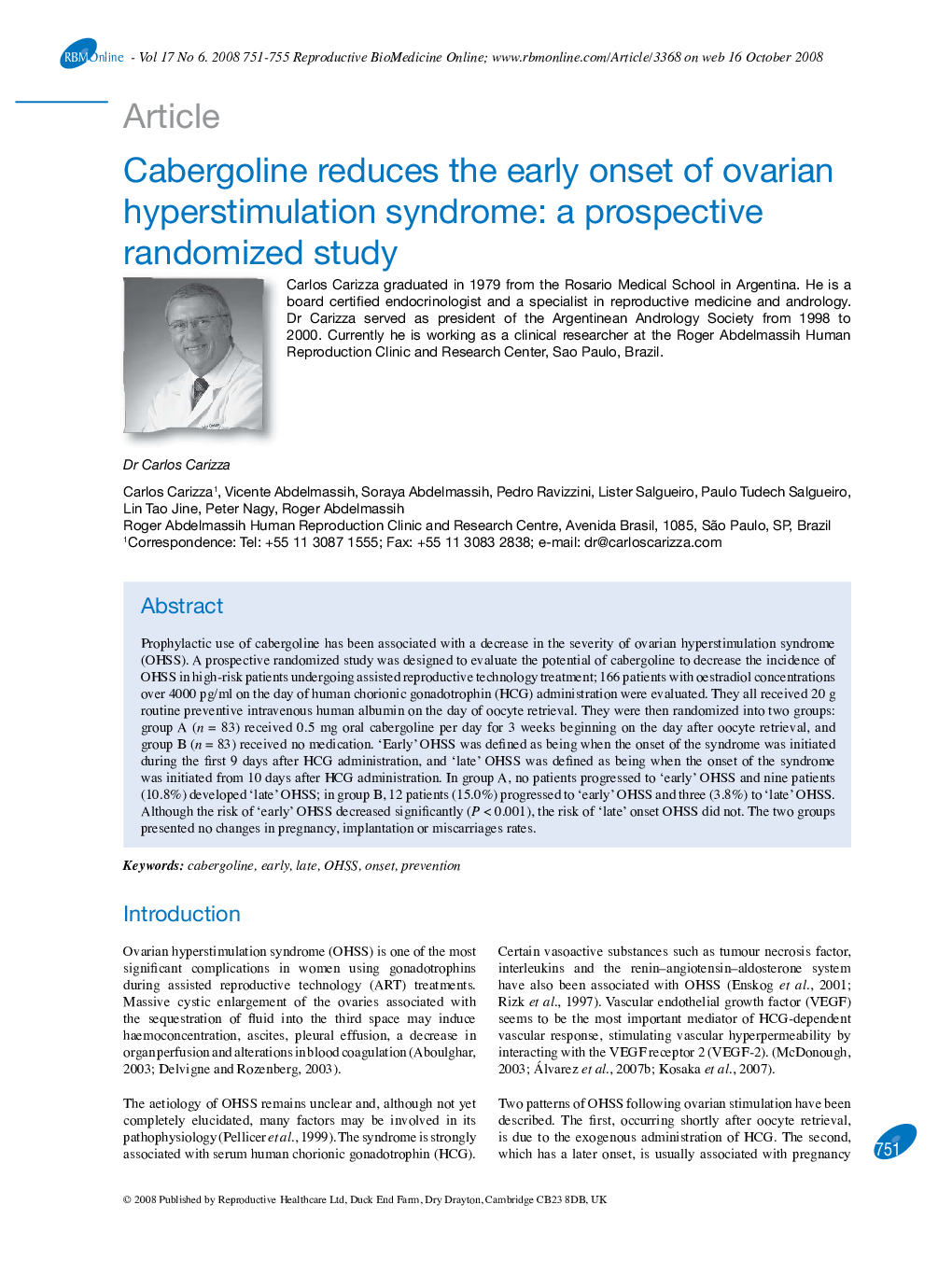| Article ID | Journal | Published Year | Pages | File Type |
|---|---|---|---|---|
| 3972299 | Reproductive BioMedicine Online | 2008 | 5 Pages |
Prophylactic use of cabergoline has been associated with a decrease in the severity of ovarian hyperstimulation syndrome (OHSS). A prospective randomized study was designed to evaluate the potential of cabergoline to decrease the incidence of OHSS in high-risk patients undergoing assisted reproductive technology treatment; 166 patients with oestradiol concentrations over 4000 pg/ml on the day of human chorionic gonadotrophin (HCG) administration were evaluated. They all received 20 g routine preventive intravenous human albumin on the day of oocyte retrieval. They were then randomized into two groups: group A (n = 83) received 0.5 mg oral cabergoline per day for 3 weeks beginning on the day after oocyte retrieval, and group B (n = 83) received no medication. ‘Early’ OHSS was defined as being when the onset of the syndrome was initiated during the first 9 days after HCG administration, and ‘late’ OHSS was defined as being when the onset of the syndrome was initiated from 10 days after HCG administration. In group A, no patients progressed to ‘early’ OHSS and nine patients (10.8%) developed ‘late’ OHSS; in group B, 12 patients (15.0%) progressed to ‘early’ OHSS and three (3.8%) to ‘late’ OHSS. Although the risk of ‘early’ OHSS decreased significantly (P < 0.001), the risk of ‘late’ onset OHSS did not. The two groups presented no changes in pregnancy, implantation or miscarriages rates.
